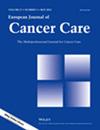新成立的结直肠癌和肛门癌治疗晚期并发症的临床经验:一项定性研究
IF 1.8
4区 医学
Q3 HEALTH CARE SCIENCES & SERVICES
引用次数: 0
摘要
目的。丹麦没有系统地提供晚期并发症的治疗。因此,我们建立了一个诊所来治疗患者的晚期并发症。通过这项研究,我们想要探索患者在这样的诊所接受治疗和护理的经验,包括他们对诊所未来组织和结构的建议。方法。我们对14例结直肠癌或肛门癌晚期并发症患者进行了定性半结构化访谈研究。我们用描述性的方法来描述病人的经历。结果。我们发现了四个主要类别:(1)从晚期并发症诊所受益;(2)对他们去哪个诊所感到困惑;(3)对诊所未来的建议;(4)准备和提供咨询。患者从参加晚期并发症诊所中受益,一些患者的症状完全缓解。其他人没有,但他们获得了希望,他们可能能够在未来接受治疗。患者希望获得更多关于晚期并发症的信息,更倾向于最常见的症状被描述以及患者友好的治疗方案。病人对电话咨询很满意,因为他们很容易适应每天的日程安排,而且病人发现很容易公开表达自己。结论。患者对晚期并发症门诊感到满意,因为他们觉得这给了他们一个安全网。对于未来,患者建议提供更多关于晚期并发症和可能治疗的信息。本文章由计算机程序翻译,如有差异,请以英文原文为准。
Patients’ Experiences in a Newly Established Clinic for Late Complications after Colorectal and Anal Cancer Treatment: A Qualitative Study
Purpose. Treatment of late complications is not systematically provided in Denmark. We therefore established a clinic to treat patients’ late complications. With this study, we wanted to explore patients’ experiences with treatment and care in such a clinic, including their recommendations for the future organization and structure of the clinic. Methods. We conducted a qualitative semistructured interview study with 14 patients who had attended a late complication clinic after treatment for colorectal or anal cancer. We used a descriptive approach to describe the patients’ experiences. Results. We found four major categories: (1) benefitting from the late complication clinic, (2) confusion about which clinic they attended, (3) recommendations for the future of the clinic, and (4) preparation and delivery of the consultations. Patients benefitted from attending the late complication clinic, and some experienced complete relief from symptoms. Others did not, but they gained hope that they might be able to receive treatment in the future. Patients wished for more information about late complications, preferring that the most common symptoms were described along with patient-friendly treatment options. The patients were satisfied with telephone consultations, as they were easy to fit into a daily schedule, and patients found it easy to express themselves openly. Conclusions. Patients were satisfied with the late complication clinic as they felt it gave them a safety net. For the future, patients recommended provision of more information about late complications and possible treatments.
求助全文
通过发布文献求助,成功后即可免费获取论文全文。
去求助
来源期刊

European Journal of Cancer Care
医学-康复医学
CiteScore
4.00
自引率
4.80%
发文量
213
审稿时长
3 months
期刊介绍:
The European Journal of Cancer Care aims to encourage comprehensive, multiprofessional cancer care across Europe and internationally. It publishes original research reports, literature reviews, guest editorials, letters to the Editor and special features on current issues affecting the care of cancer patients. The Editor welcomes contributions which result from team working or collaboration between different health and social care providers, service users, patient groups and the voluntary sector in the areas of:
- Primary, secondary and tertiary care for cancer patients
- Multidisciplinary and service-user involvement in cancer care
- Rehabilitation, supportive, palliative and end of life care for cancer patients
- Policy, service development and healthcare evaluation in cancer care
- Psychosocial interventions for patients and family members
- International perspectives on cancer care
 求助内容:
求助内容: 应助结果提醒方式:
应助结果提醒方式:


